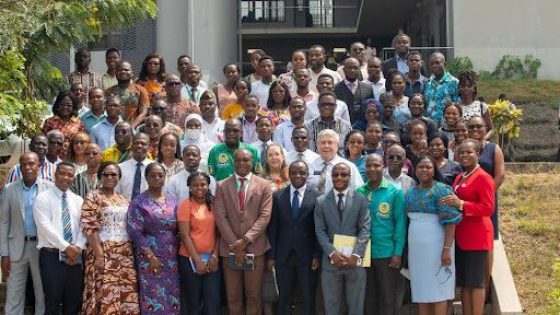The University of Environment and Sustainable Development (UESD) in Somanya, Ghana, has recently inaugurated an eco-friendly tech lab, enhancing sustainable education. This innovative 60-seat computer lab, gifted by The Church of Jesus Christ of Latter-day Saints on January 29, 2025, represents a significant step toward integrating technology with environmental responsibility.
- UESD inaugurates energy-efficient computer lab.
- Lab supports green computing principles.
- Donation is largest since UESD's founding.
- Initiative bridges Ghana's digital divide.
- Focus on sustainable technology education.
- Partnership aligns with Ghana's digital agenda.
How can educational institutions balance tech advancement with eco-conscious practices? This new facility aims to answer that question while preparing students for a digital future.
Ghana’s New Eco-Friendly Tech Lab: A Model for Sustainable Education
What does this new lab mean for students in Ghana? The N-Computer Lab is designed to bridge the digital divide, equipping students with modern tools while adhering to green computing principles. This facility not only promotes digital literacy but also emphasizes responsible technology use, ensuring students learn to innovate while caring for the planet.
Innovative Features of the N-Computer Lab at UESD
The N-Computer Lab is equipped with advanced technology that prioritizes energy efficiency. Here are some of its key features:
- 60 energy-saving computers designed to minimize power consumption
- A smart board for interactive learning experiences
- Industrial-grade power backups to ensure continuous operation
- Servers focused on reducing electronic waste
Empowering Students Through Sustainable Practices
Mary Agyepong, UESD’s Registrar, highlighted the lab’s role in preparing students for a competitive global market. By focusing on responsible technology deployment, students will gain hands-on skills essential for their future careers. This approach not only enhances their job prospects but also instills a sense of environmental stewardship.
The Role of Faith-Based Organizations in Promoting Sustainable Development
Elder Samuel Annan Simons, representing the Mormon Church, emphasized the broader humanitarian goals behind this donation. He stated that education and sustainability are intertwined, and this lab serves as a testament to that belief. Such partnerships between faith-based organizations and educational institutions can pave the way for impactful community development.
As Ghana moves towards its 2030 digital transformation agenda, initiatives like the N-Computer Lab at UESD provide a blueprint for integrating technology with environmental ethics. This lab is more than just a classroom; it’s a commitment to nurturing future leaders who are equipped to tackle global challenges.
































